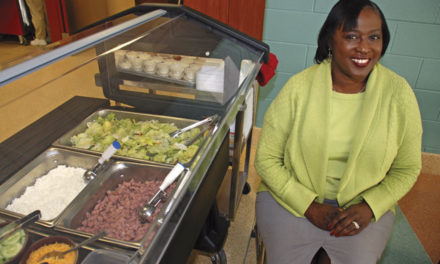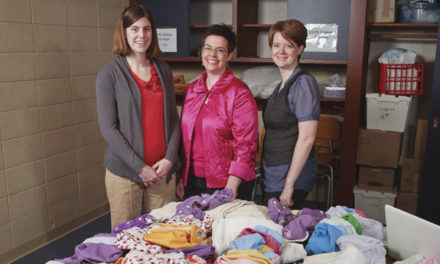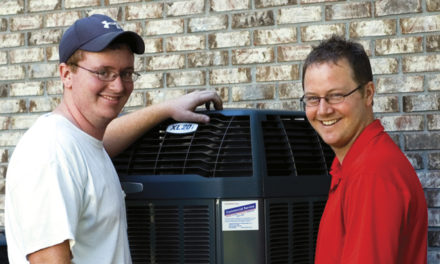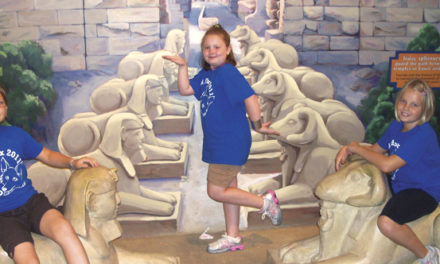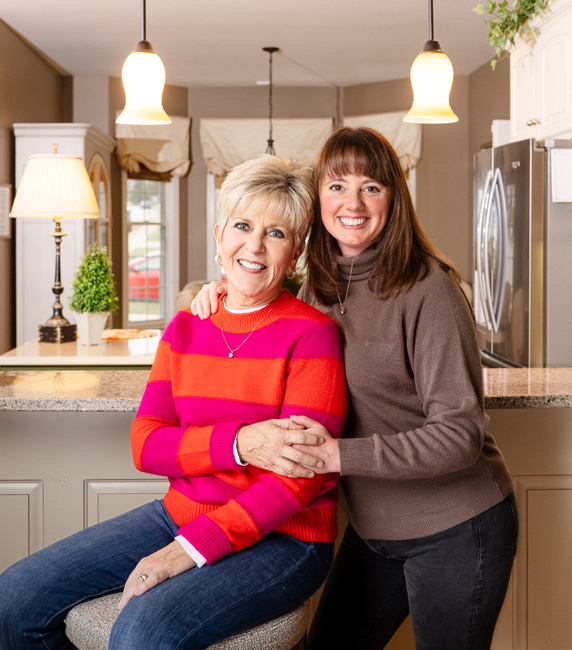
(l-r) Christi Pike and stepdaughter Emily. Photo by Martin Boling
by CARMEN SIERING
When Christi Pike, 57, woke up with a headache on December 21, 2018, she asked her husband, Jim, to take her to Urgent Care so she wouldn’t be sick over the holidays.
“My blood pressure was something like 210/160, so they sent me to the ER,” Christi says.
She was quickly diagnosed with Stage 5 kidney failure, which doctors determined she had contracted from a virus that attacked the lining of her kidneys.
“Stage 5 is the worst,” Christi says. “It means you go on dialysis immediately and you need a kidney transplant.”
According to the Alliance for Paired Kidney Donation (APKD), more than 100,000 people are waiting for a kidney transplant in the United States. Only 17,000 of them will receive a kidney this year.
Christi and her family soon learned how difficult it would be to obtain a new kidney. Life changed.
“I was doing dialysis three days a week for four hours at a time,” says Christi, who is director of Human Resources for the Indiana University Luddy School of Informatics, Computing and Engineering. “The worst part was boredom. But Emily would come and bring me lunch and play games with me.”
Emily Pike, executive director of New Hope for Families, is one of nine children in Christi and Jim’s blended family. And while Jim, their other children, and Christi’s sister all jumped at the chance to donate a kidney on her behalf, it was Emily, 36, who doctors believed would make the best match.
“Emily was such a superstar,” Christi says. “She had a lot of tests, she kept on top of things, and she got things done.”
While Emily’s testing continued, so did Christi’s. Doctors determined that Christi had a very high level of antibodies, which meant that while 25 to 30% of donor kidneys would typically match, Christi would only be compatible with about 2% of donors. Emily’s kidneys were not a match.
“They told us it could take a few years, and suggested Emily go ahead and donate to someone else,” Christi says.
Emily’s donation would be part of a paired kidney exchange program, which would allow her to pay her donation forward.
“Then they would give us a ‘kidney gift certificate’ so when a match became available for me, I would be good to go,” Christi says.
The Pikes were placed on the paired donor list in August 2019, and on September 18—Christi’s birthday— fate intervened. Christi and her family were told a match had been found.
Although that initial September pairing fell through, a new match was confirmed two months later and Christi’s surgery was scheduled for November 6.
In many organ donation situations, donors and recipients never meet. The Pikes’ situation was different— on November 18, they met the recipient of Emily’s kidney.
“His name is Don Lewis,” Emily says. They also met the person who donated his kidney on Don’s behalf, a young man named Sean who works for him.
Several years earlier, Sean experienced substance use disorder and Lewis offered to pay for treatment, holding his job until Sean was able to return.
“Now he’s clean, he’s married, and he has two kids,” Emily says. “He says Mr. Lewis saved his life, so when he had the chance to return the favor, he had to do it.”
Christi has monthly checkups at UofL Health–Jewish Hospital in Louisville, Kentucky, where the transplant was performed. She schedules them the same day as Lewis, so the two can keep in touch.
Kidney transplants weren’t something the Pikes knew much about before. Now they feel like experts. Emily says that in the past year, dozens of people have come up to her and told her of someone they know who needs a kidney transplant and asked for advice or information.
“It’s amazing how prevalent it is,” she says. “Now I’m the kidney person.”
For more on paired kidney donation and the APKD, visit paireddonation.org.


